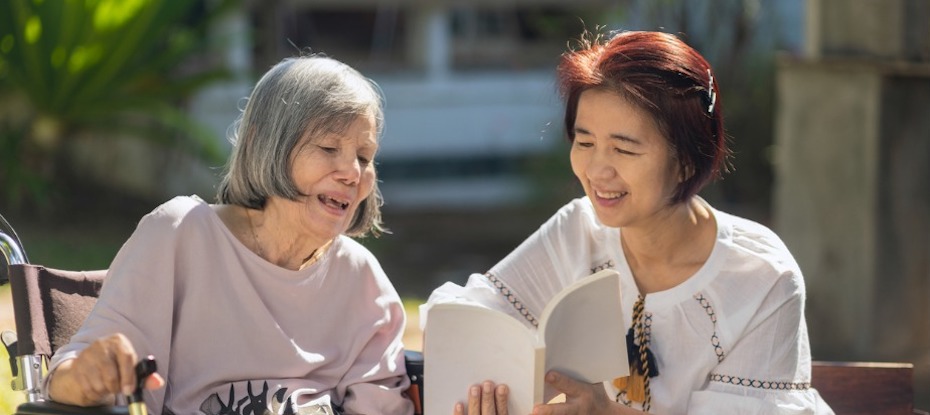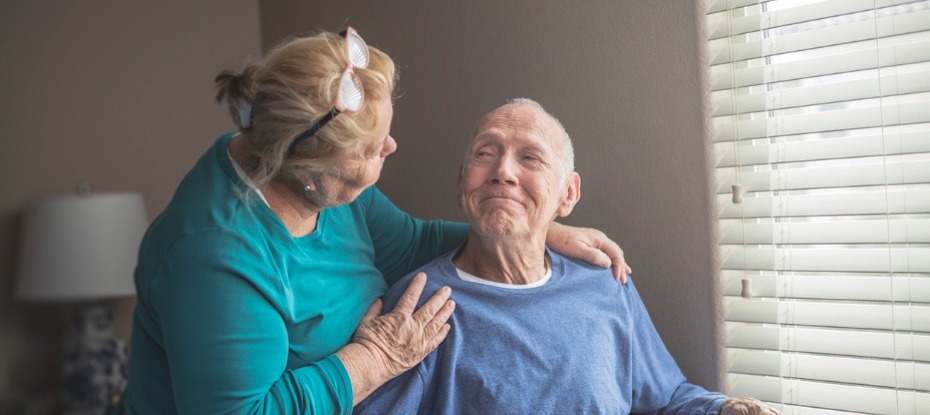
Dementia is a cruel disease. Caring for a loved one with dementia can be really challenging. Some carers describe watching dementia rob them of the person they know and love leaving them with someone they don’t recognise.
Over 250,000 Australians are living with dementia in Australia, and over 1300 new cases get diagnosed every week.
What is Dementia?
Dementia is a term that covers multiple medical conditions related to changes in the brain. Alzheimer’s disease accounts for the majority of dementia cases which is caused by changes in the brain leading to deposits of proteins and brain shrinkage.
Other types of dementia include Vascular dementia which is caused by tiny bleeds and blood vessel blockages in the brain.
Lewy body dementia (LBD) occurs due to abnormal deposits of the alpha-synuclein protein in the brain. The frontotemporal disorder is the damage to neurons in the front of the brain.
Mixed dementia refers to more than one cause or condition that alters the brain.
Causes of Dementia
The exact cause of dementia is not known. Age and genetics are the main risk factors but research suggests poor diet, smoking, lack of exercise, and lack of brain stimulation may increase the risk.
Different types of dementia are linked to different parts of the brain. Each region of the brain is responsible for different functions. When cells in the brain are damaged, the damaged region can’t carry out its normal function including memory, movement, or judgement.
Dementia Symptoms to Look Out For
If you suspect that a loved one may be developing dementia, below are some tell-tale symptoms:
- Problems with short-term memory
- Confusion about time and place
- Struggling with basic meal preparation
- Forgetting appointments and how to do familiar daily tasks frequently
In some cases, these symptoms may not be related to dementia and instead may indicate depression, thyroid problems, vitamin deficiencies, or the effects of medications. It’s important not to put symptoms down to old age and to seek a diagnosis. A doctor may need to carry out a range of tests to diagnose dementia including a physical exam, medical history, tests, and the daily function and behaviours of the patient. The diagnosis may not come with an exact type of dementia because symptoms and brain changes can be apparent in multiple.
Dementia Treatments
While there is no cure, early diagnosis can allow for early treatment of dementia. Medication can slow the symptoms and improve the quality of life. Non-drug therapies are also used to help reduce symptoms.
The average life expectancy is 4-8 years after diagnosis, but some people live as long as 20 years.
Changes That Occur in Dementia Patients
Dementia can affect every aspect of the patient's life and those around them on an emotional, physical, and social level.
Emotional Symptoms of Dementia
Dementia can be frustrating for the patient and their families. Forgetfulness can be one of the most frustrating symptoms. As a carer, suggest writing things down in a notebook or post-it note to help them remember. Use a timer if the oven or hose is on. Try to discourage them from cooking if they could injure themselves or leave the cooktop on.
The onset of dementia can coincide with aggressive and angry tendencies. According to one study, almost 20% of newly diagnosed dementia patients behave aggressively towards caregivers including family members. It’s thought that dementia triggers violent mood swings due to changes in the brain’s neurochemistry. But aggressive behaviour is often triggered by a specific cause such as pain, noise, poor sleep, being pushed to do something, lack of contact with others, constipation, or soiling themselves.
Carers should look for possible causes to avoid them in future, if possible. When a loved one is aggressive or agitated, reassure them and speak calmly. Try to distract them with a snack, an activity, gentle touch, or music. Try to protect yourself and your loved one from hurting themselves. Carers should try to remember that their loved one can’t help what they say or how they behave.
Physical Symptoms of Dementia
Changes in the brain can impact a patient's ability to move. Their reduced mobility can restrict their capacity to care for themselves because they may be limited to walking, dressing, showering, or moving around the house. They will be more likely to have a fall due to loss of balance and coordination. If your loved one lives in their own home, consider installing grab rails in the bathroom and near steps.
Encourage physical activity for as long as they can to prevent muscle weakness and mobility problems for as long as possible.
Instead of just making suggestions, go for walks together, water the plants, and encourage seated activities such as throwing a beanbag or doing art.
As the body starts failing, other health problems can arise including infections from a poor immune system and pneumonia because of inhaled food or drink by accident.
Social Symptoms of Dementia
Dementia patients often suffer from social exclusion and difficulties. Friends and family may find it difficult to have conversations with them. Conversations in general can be more difficult because they may struggle to find the words. In these cases, reassurance works best. Suggest no rush to finish the conversation and if they cannot remember, tell them you can talk about something else.
Engaging with smaller groups and on a one-on-one level can be less overwhelming for someone with dementia and help them be part of social activities. Carers can help by keeping communication to simple subjects and asking questions that have definitive answers.
People with dementia often have good long-term memory, so looking through old photos and listening to their favourite music can help them engage socially. Having contact with young children or animals can also be something positive for them.

What a Carer of a Person with Dementia Needs
Carers of patients with dementia may compromise their health due to the strain of looking after a loved one.
Emotions of Being a Carer
A carer can experience a range of emotions every day; grief, loss, anger, guilt, desperation, sadness, and so many more. It is common to feel grief and loss regardless of having the person physically by their side. Anger may arise due to a feeling of being "trapped" in the situation. Guilt may slide when thinking they cannot do it all or provide the level of care they want.
Carers Need Time Out
A time out from their caring role is important to recharge and continue providing the love and care wanted. Being away from their loved ones with dementia allows them to relax and give themselves a mental and physical break. Regular breaks can make a person a better carer because they still need to care for themselves before dedicating themselves to someone else.
Most carers may find themselves under mental and/or physical strain. A balanced diet, exercise, and social contacts can help keep a carer’s immune system and entire body strong and healthy.
Caring for the Elderly in Later Stages of Dementia
People with dementia in the later stages may require 24/7 care. Physical limitations may limit care for themselves, and the decline in their mental capacity means they are at risk of wandering off or injuring themselves. Patients can lose bladder or bowel control, suffer seizures, and struggle to move from the chair or bed.
Sometimes a partner will provide around-the-clock care or have help from professional carers or other family members. Being on constant calls is exhausting and stressful for carers, especially when caring for the elderly.
When a person is in their final stage of dementia and life, the main focus is to make them feel as comfortable as possible. They are often confined to bed or a chair and often have lost the ability to speak and understand. Eating and drinking can become difficult because of swallowing difficulties or because they cannot recognise the food. It is common at this stage to require total care for all their personal care needs.
Relatives may not be able to have a conversation with their loved ones at this stage, but many will still respond to the sense of touch. Holding their hand while sitting with them and giving them a hug or kiss will be appreciated by many.
As difficult as it is, during the initial stages, it is best to discuss how they would like to be cared for later on. It will allow the family to plan and look for nursing care placements if it is the case.
More Information
Caring for someone with dementia can be hard, but having a good understanding of the disease can help. Visit a GP or the Dementia Australia website and encourage close friends and family to do the same. Knowing how the disease can progress and what your loved one will require can help you with the current and future situation.
Don’t leave it up to your loved one to attend GP or specialist appointments on their own. Even in the early stage of dementia, they will need a carer to take in all the information.
HIF provides different levels of Hospital & Extras cover for various health services. Find out which cover is right for you, or contact our team and we’ll be able to help you find the right level of cover that suits your needs.